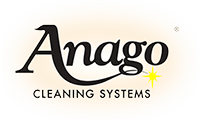
If you’re looking to start a business, one question that you might have asked yourself is whether you want to create an independent business or get involved with a franchise. While owning a franchise allows you access to numerous benefits, there is a lot to consider.
Franchising happens when a franchisee (a third-party buyer) purchases the brand rights from a franchisor (the brand owner). It’s the franchisee’s job to pay franchise fees for the rights to use said brand, as well as ongoing fees for marketing, royalties, and more.
It’s pivotal to consider the pros and cons of getting involved with franchising. You can use this guide to determine the many advantages and disadvantages of franchising:
Advantage #1: Brand Recognition
The biggest advantage you can have with franchising your business is that it already has brand recognition. Building a new business from the ground up requires a great deal of work to build your brand. Franchises are typically already well-known establishments with a brand people are familiar with. When your business already has a built-in customer base, it will be easier to meet your financial expectations.
Advantage #2: Business Assistance
A helpful advantage when buying from an established franchise operation is the assistance you will receive from the franchisor. This will depend on the agreements of the franchise, but franchisees will have access to advertising plans, equipment, and supplies needed to run the business.
You’ll have access to a wealth of knowledge and training because the franchise will supply you with the information and training you need. You may even have direct communication with the franchisor themselves. They can offer their wisdom and know-how to ensure your success during day-to-day operations.
Advantage #3: Profits
If you want to start your own business, you’ll probably have to include a significant investment of your own money, and it’s not always certain that you’ll generate enough income. Compared to independent businesses, franchises will likely receive higher profits because of their recognizable brand. You won’t have to worry too much about a lengthy start-up time or gaining revenue. You’ll know that your initial investment is heading toward a profitable and positive outcome.
Advantage #4: Reduced Risk
The number of risks that come with starting an independent business is high. Franchising isn’t always safe, but it has a better chance of risk reduction. Most franchises are owned by established corporations that have a tried and true business model that’s been implemented in many markets.
Due to the reduced risks, the franchisee might also receive easier access to franchise loans that can assist in launching the business.
Advantage #5: Be Your Own Boss
An asset when owning your own business is being your own boss. You’ll get the added support from the franchisor, all while being the boss in the process.
We don’t want to give the assumption that this means you won’t have to do any work, far from it. What you will get is the ability to make your own schedule, have control over your career, and have the possibility of working from home. Owning a franchise allows you to be the boss without facing the risk of starting your own successful business.
Disadvantage #1: Rules & Regulations
Most franchises allow the franchisee to be the boss, but that doesn’t mean they’re in total control of the company. It’s the franchisor that makes the decisions at the end of the day, and they will do so without hearing your opinion.
This can be a frustrating aspect of franchising. Franchisees will have to follow the rules and regulations laid out in the agreement. In some cases, franchisors can demonstrate their control over the decisions made by the franchisee.
Most franchisors control many aspects of the business, including the following:
- The physical location of the business
- Hours of operation
- Holidays
- Decor
- Pricing
- Products
- Advertising and marketing plans
- Resale conditions
While most of these rules and regulations are created for uniformity between franchisees and the brand, they can be frustrating for the franchisee to work under.
Disadvantage #2: Initial Cost
Your initial investment can get you numerous franchise benefits, but they can come at a cost, especially if you’re entering into a very profitable company. While this can mean bigger profits, you’ll still have to front a large amount of your own money. Always consider your options before buying into the initial cost of the franchise.
Disadvantage #3: Ongoing Investment
The initial investment aside, every franchisee will still have to worry about the ongoing costs associated with franchises. The costs may include advertising fees, service charges for training employees, royalty fees, and more. Keep these costs in mind, as they might determine where you stand on investing in a franchise.
Disadvantage #4: Reputation
Many franchisees don’t think about this disadvantage, but your reputation can get stifled by the actions of other franchisees or franchisors. If another franchise owner has been known to offer poor service or quality goods, it may reflect on your place of business. If a franchisor makes a bad investment or decision that radically affects your base of operations, you may start to see a decline in customers and profits.
Are you looking to start your own cleaning franchise in Winnipeg? Anago Cleaning Systems ensures that you’ll receive initial and ongoing training from our regional office. We will provide you with the knowledge necessary to develop the skills needed to run a franchise. Contact us today to begin your journey toward success.
